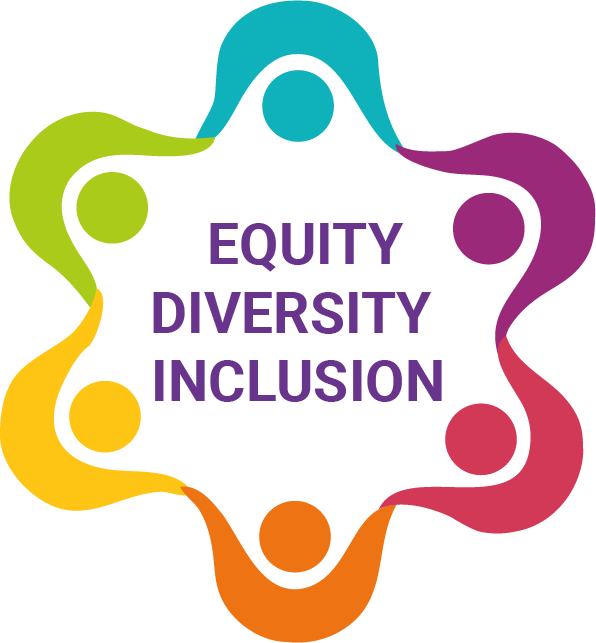EDI has always been at the heart of AWIR’s mission
AWIR was founded on the principle of advancing the leadership opportunities and education available to women in rheumatology. While this demonstrates our longstanding commitment to serving an underrepresented segment of practitioners, our efforts go much further—embracing and promoting EDI in clinical practices, organizational policies, patient care, clinical research, state and federal policies, and more.

AWIR promotes an equitable, diverse and inclusive rheumatology workforce—around the world
AWIR leaders travel the globe educating institutions, rheumatologists and health policy decision-makers about the inequities present in academia, clinical medicine, research and medical education.
Our goal is to promote awareness of the barriers that women, minorities and other groups experience during training and in the workplace.
Our experts propose practical solutions to enhance diversity in the make-up of the rheumatology student and professional community, foster workplace environments that are friendly and equitable for all, and proactively include members from all backgrounds as equally valuable voices during decision making in the field.
We believe this is important because:
- Male physicians still earn more than female physicians per hour, and the income disparity is widened for women who have children1
- Black physicians earn almost $50,000 less per year on average than their White counterparts1
- The rheumatology workforce is becoming less racially and ethnically diverse, rather than more2
- Women make up the majority of rheumatology practitioners but lag behind in academic leadership roles, research funding, and publications3
1. Charles S. Physician Compensation 2023: The good, the bad, and the ugly. MDLinx. 09 Nov 2023. Accessed May 2024.
2. Vassileva MT et al. Improving health equity in rheumatology through workforce diversification and support for health equity research and education. Arthritis & Rheumatology. 2024. ePub ahead of print. doi: 10.1002/art.42804.
3. Mahmood SN, Blanco I. The road to equity for women in academic rheumatology. Nat Rev Rheumatol. 2020; 16(12):669-670.



AWIR Supports Evidence-Based, Culturally Conscious, Accessible Care For Patients Everywhere
Equity, diversity & inclusion go beyond fair paychecks and transparent promotion criteria. They matter for holistic, individualized, culturally conscious care for patients.
Key elements of AWIR’s mission include advocating for widespread access to the highest quality health care and promoting the most effective, evidence-based management of patients with rheumatic diseases.
We work to advance EDI in patient care because:1
- Access to care is limited for large numbers of patients due to distance, transportation barriers, cost, and insurance status
- Racial and ethnic minorities frequently have worse health outcomes for rheumatic diseases
- Appropriate referrals and treatment regimens are not provided equally to all racial and ethnic groups
As physician shortages exacerbate access to specialty rheumatology care, AWIR also works to increase the recruitment of fellows and advanced practice professionals into the field of rheumatology, to secure access to care for all patients in the future. We are also at the forefront of embracing physicians and patients from all walks of life, including gender-diverse backgrounds.
1. Lopez MA. Racial and socioeconomic disparities in rheumatology. Rheumatology Advisor. 11 Aug 2023. Accessed May 2024.

AWIR Pioneers Research Exploring EDI Elements In Rheumatology Practice And Patient Care
AWIR aims to promote the science and practice of rheumatology, in part through supporting rheumatology research. All of our research endeavors consider EDI and actively strive to include diverse populations, including those traditionally excluded in clinical research.
Improved care for all patients depends on data informed by diverse communities that reflect our patient populations.
We proactively emphasize EDI in research because
- Minorities have been underrepresented in rheumatology clinical research, including trials leading to the approval of key rheumatology drugs1—despite decades of awareness about the need for inclusive trials and NIH policy for NIH-funded research that requires inclusion of women and minorities2
- We believe women rheumatologists should increase their involvement in academic research and publications
- There are EDI-related topics in rheumatology we believe deserve attention that could contribute to the improvement of medical practice, physician wellbeing, and patient outcomes
1. Xie Y, Liu Y, Qin Y, Chen X, Xie Q. Characteristics of race/ethnicity in trials leading to anti-rheumatic drug approval for inflammatory arthritis by the US Food and Drug Administration. Int J Rheum Dis. 2023 Dec;26(12):2489-2497.
2. NIH Office of Research on Women’s Health. “NIH Guidelines: Inclusion of Women and Minorities.” In: NIH Inclusion Outreach Toolkit: How to Engage, Recruit, and Retain Women in Clinical Research. National Institutes of Health. Available online at https://orwh.od.nih.gov/toolkit/nih-policies-inclusion/guidelines. Accessed May 2024.

AWIR Educates Health Professionals And Advanced Practitioners On EDI Principles
When people do not recognize the impact of biased or inequitable care through firsthand experiences, data and discussion become essential.
AWIR leaders and guest experts share their knowledge during our many continuing medical education opportunities.
When people do not recognize the impact of biased or inequitable care through firsthand experiences, data and discussion become essential.
From annual conference sessions on how to convince human resources departments to change family leave policies, to evergreen web sessions on treating patients from minority populations, to virtual summits on culturally conscious care related to intersecting disciplines, AWIR constantly advances members’ exposure to EDI topics, with the added benefit of free or low-cost CME credits.
Example sessions include:
- “Discerning Clinical and Cultural Differences in Rheumatology” – 2.0 CEU
- “Tailoring Shared Decision Making for Diverse Rheumatology Patients” – 2.0 CEU
- “The Socioeconomic Side of Rheumatology Care: Determinants and Inequities” – 2.0 CEU
- “Bridging the Gap in Access to Rheumatology Care” – 2.0 CEU
- “How Comorbidities Contribute to Health Inequalities in Rheumatology” – 2.0 CEU

AWIR Gets EDI Issues In Front Of Policymakers
AWIR leaders and members do more than just talk about EDI. We advocate for policies that reflect our beliefs, both locally and nationally.
Our board of directors and AWIR Advocates have spoken in front of Congress, lobbied state and federal representatives, and organized advocacy efforts supporting a wide range of important health care and medical practice policies.
We train new advocates and engage in activism because:
- We believe patients should not suffer due to arbitrary changes or fail-first requirements in pharmacy benefits for their health plans
- Prior authorization red tape and accumulator adjustment tools can negatively impact patient care and interfere with adherence and access to the most effective medical prescriptions, while undermining physicians’ role in decision-making
- The gender pay gap and workforce shortage require urgent proactive political action to achieve equitable resolution
- We believe our Policy Priorities represent key ways to positively impact patient care
We encourage AWIR members to get involved, and we provide the tools they need to do so! Check out our AWIR Rheumatology Advocacy Training Program.

Join A Community Founded On The Belief That Equity, Diversity And Inclusion Are Key To The Success Of Our Field And Our Patients
AWIR is a medical organization leading the way toward EDI principles in the practice of medicine, for both professionals and patients.
Join like-minded individuals in advancing our cause and making medicine a more welcoming and equitable field for us all.



